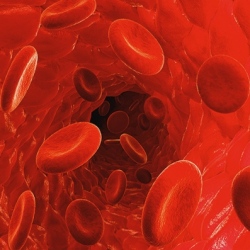
The Ebola outbreak, is slowly coming under control, according to the World Health Organization. Now, researchers are saying that there is hope that it will soon never resurface in epidemic proportions again, as an experimental vaccine called VSV-ZEBOV was recently found to be both safe and effective in early human trials.
Ebola isn’t exactly a virus that needs an introduction. It has been causing complete disarray in West Africa for the greater part of the last 15 months, jumping from Guinea’s most remote regions to its capital, and on to Liberia, Sierra Leone, and other bordering countries. Symptoms include severe fever, vomiting, diarrhea, and horrific bleeding from the eyes, ears, mouth, and rectum.
One of the reasons that Ebola has been so difficult to treat and contain is that we know very little about it. Ebola lives a particularly short life in the human body, either being defeated by modern medicine or killing its victims in short order.
This means that researchers have very little time to observe the virus in action, as doctors simultaneously struggle to save their patient. Experts recently discovered what could be the "Achilles heel" of Ebola and other members of the nonsegmented negative-strand (NNS) RNA virus family. However, potential treatments taking advantage of this discovery are still many years in the making.
That’s why immunotherapy – using exposure via vaccine – would be most preferable. Experts may not know how to stop Ebola in its tracks, but the human immune system is a faster learner.
Early phase clinical trials with VSV-ZEBOV recently showed that this could indeed be the best approach, with most volunteers who received the vaccine developing antibodies against Ebola within 14 days of injection. In four weeks time, all 40 injected participants (aside from 12 placebo controls) developed an efficient immune system response.
Most importantly, the injection did not prompt any Ebola symptoms in any of the inoculated. And that’s good because such an adverse reprocess should not be impossible.
